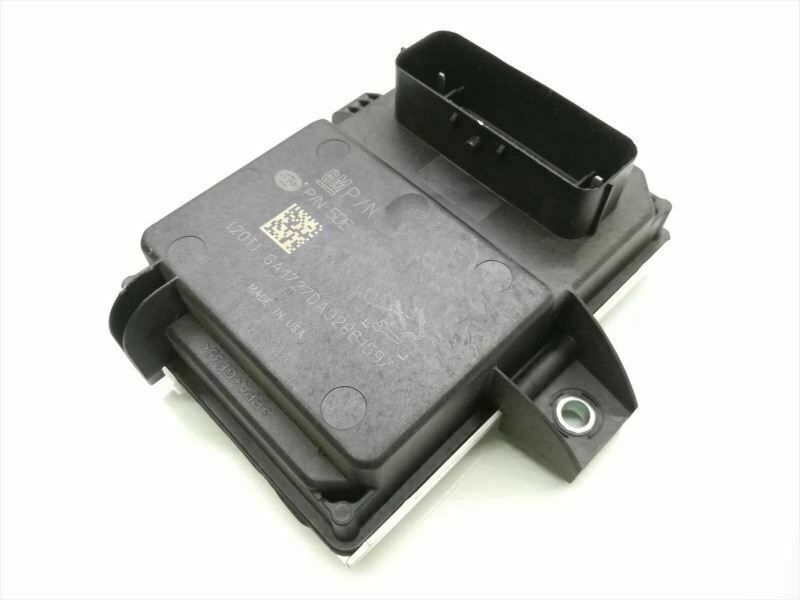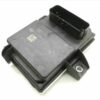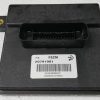Restore Your Vehicle’s Reliability and Performance
Is your Chevrolet Sonic, Cruze, or other GM vehicle experiencing frustrating issues like stalling, hesitation, or a complete failure to start? A faulty Fuel Pump Control Module (FPCM) is often the culprit. This vital component regulates the voltage sent to your fuel pump, and when it fails, it can leave you stranded. Get back on the road with confidence with this direct-fit, professionally programmed Fuel Pump Control Module, designed to restore your vehicle’s factory performance and dependability.
Common Symptoms & Your Direct-Fit Solution
Don’t let a bad module disrupt your life. If you’re noticing any of the following signs, this part is the solution you need:
- Engine cranks but refuses to start
- Sudden stalling while driving or at idle
- Noticeable hesitation or sputtering during acceleration
- Reduced engine power and poor fuel economy
- Check Engine Light with diagnostic trouble codes (DTCs) such as P069E, P0230, or U0109
This isn’t just a replacement part; it’s a complete, ready-to-install solution. We use your vehicle’s specific Vehicle Identification Number (VIN) to flash the module with the latest, most stable software updates from GM. This critical step ensures perfect communication between the module and your car’s computer, eliminating the need for an expensive trip to the dealership for programming. This is the most efficient way to fix the problem correctly the first time. Our programmed 2013-2014 Sonic fuel pump control module is engineered to meet or exceed original equipment specifications for a perfect fit and flawless operation.
Features & Tangible Benefits
- ✔ VIN-Programmed for You: Arrives ready for installation, completely eliminating the need for dealer programming fees and appointments.
- ✔ Latest GM Software: Flashed with the newest updates to address common failure points and improve long-term reliability.
- ✔ Restores Proper Fuel Delivery: Ensures your engine receives the precise fuel pressure it needs for smooth idling, sharp acceleration, and optimal efficiency.
- ✔ Direct-Fit Replacement: Designed to be a perfect match for the original module (replaces part numbers 22874299 and 22874300), ensuring a straightforward installation.
- ✔ Cost-Effective Repair: Get a dealership-quality solution at a fraction of the cost, saving you significant time and money.
- ✔ This unit is backed by our one-year replacement warranty.
An Expert’s Take: Why Programming is Non-Negotiable
“As a technician with over two decades of experience, I’ve seen countless drivers replace an FPCM only to have the same problem persist because the new module wasn’t programmed. Your vehicle’s computer system is a network, and the FPCM is a key player. Without being programmed to your specific VIN, it can’t ‘talk’ to the other components correctly. This can lead to incorrect fuel pressure, persistent error codes, and even a no-start condition. Our process of pre-flashing the module with the latest GM software isn’t just a convenience—it’s the foundation of a lasting, reliable repair.”
By choosing our programmed 2013-2014 Sonic fuel pump control module, you are investing in a hassle-free repair that restores both your vehicle’s function and your peace of mind. After you complete your purchase, simply provide us with your VIN, and we’ll handle the complex programming for you. We’ll ship a part that is truly plug-and-play, getting you back behind the wheel faster.
This module is compatible with a wide range of GM vehicles, including the Camaro, Caprice, Cruze, Volt, Impala, XTS, Verano, Orlando, Trax, and Encore from 2013-2014. Please verify the fitment list to ensure compatibility with your specific model and options. Take control of your repair with a reliable, professionally prepared programmed 2013-2014 Sonic fuel pump control module.
Frequently Asked Questions
Why is it essential to provide my VIN?
Your Vehicle Identification Number (VIN) is unique to your car and contains critical information about its specific options and software requirements. We use your VIN to load the exact, correct software from GM onto the module, ensuring it communicates perfectly with your vehicle’s main computer (ECM) for a seamless, error-free installation.
Is this part difficult to install?
The physical installation is generally straightforward for someone with basic mechanical skills. The module is typically located in the trunk or behind an interior quarter panel. Because our part comes pre-programmed, the most difficult part of the job (the software setup) is already done for you, making it a plug-and-play electrical component.
Will this module fix a P069E error code?
Yes, the DTC P069E (Fuel Pump Control Module Requested MIL Illumination) is one of the most common codes indicating a failing FPCM. Replacing the faulty original module with this pre-programmed unit is the definitive solution for this code in most cases.
What happens if I forget to send my VIN after purchase?
Providing your VIN is a required step for this part. We cannot program and ship your order until we receive your vehicle’s VIN. We will contact you after your purchase as a reminder, but prompt submission ensures the fastest possible delivery.
Does this fit vehicles other than the Chevy Sonic?
Absolutely. This module is a compatible replacement for a wide range of 2013-2014 GM vehicles, including the Buick Encore, Chevy Cruze, Chevy Trax, and Cadillac XTS, among others. Please refer to the detailed fitment list on this page to confirm it matches your specific make and model.


